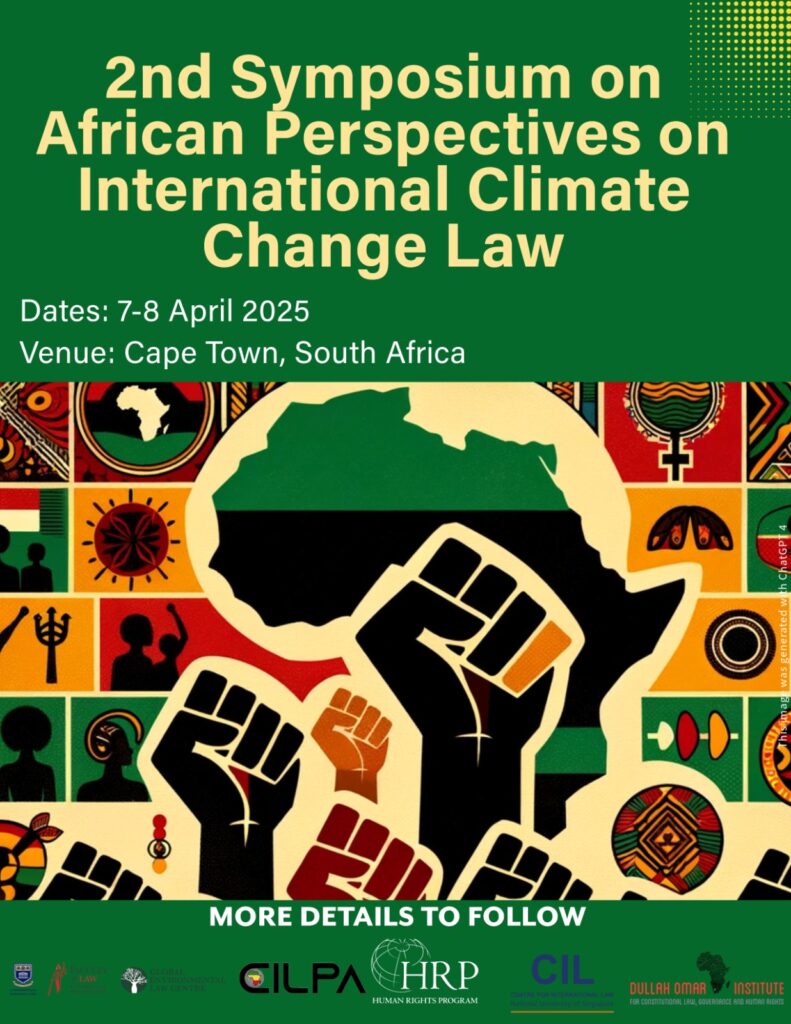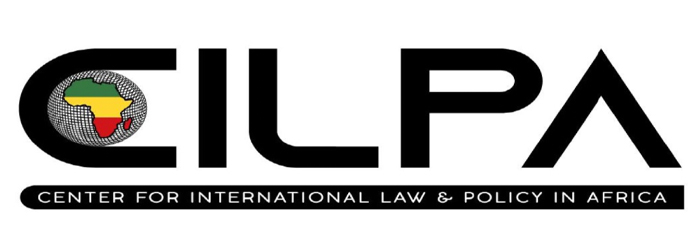Projeect
May 2024-April 2025
Scientific Evidence on Climate Change Clinic in Africa
CILPA has received funding from the Foundation for International Law for the Environment (FILE) for a one-year project (May 2024-April 2025) the Scientific Evidence on Climate Change Clinic in Africa. This project focuses on providing localized scientific evidence on climate change to support African States in the International Court of Justice (ICJ) climate change advisory proceedings. It addresses the barrier of insufficient continent and region-specific scientific knowledge by identifying local scientific experts and collaborating with institutions across Africa to assist in providing that evidence to the States which in turn can use that to assist the Court.
Scientists representing the various regions of Africa will be a) identified; and b) convened to assist the legal advisors of African States partaking in the ICJ advisory opinion proceedings in reviewing their first written submissions, drafting written comments on how scientific evidence could be better used in the second round of submissions, and preparing for the oral hearings.
The latest report from the Intergovernmental Panel on Climate Change (IPCC) highlights the particular vulnerabilities of African States in relation to climate change. The IPCC has noted that while Africa has contributed negligibly to the changing climate, with just about 3% percent of global emissions, it stands out disproportionately as the most vulnerable region in the world. It is already experiencing widespread effects attributable to human-induced climate change, including “bio-diversity loss, water shortages, reduced food production, loss of lives and reduced economic growth.” Among the overarching conclusions are that the continent has high exposure and vulnerability with multidimensional socio-economic, political and environmental factors intersecting with each other to paint a bleak scenario. This is especially so given also the limited funding available to African States for adaptation and mitigation measures.
Due to Africa’s particular vulnerability to climate change, which has an impact on the continent’s stability, security, and social and economic development, the climate change advisory opinion proceedings at the ICJ provide a significant opportunity for African positionalities and views to help shape the development of international law.
But unfortunately, far too often, African States lack the capacity to fully participate in such proceedings due, inter alia, to resource constraints. And they often are not able to put their best arguments forward due to paucity of resources. One of the barriers to African State participation is the lack of continent and region-specific scientific knowledge on climate change and its impacts. States, in their submissions, have relied on the “best available science” to support their arguments, which was mostly drawn from the IPCC Reports and the Union for Concerned Scientists research. While this research is authoritative and the best, current, and reliable information in terms of general scientific research, it could be supplemented with greater specificity for individual African States and regions by bringing in the local knowledge of African scientists based in the countries concerned. Localised research from scientists and institutions in Africa will likely serve to complement the science currently available to African States, especially in order to demonstrate their particular vulnerability to climate change and its impacts in the ICJ advisory opinion proceedings.
Hence, CILPA has been trying to play an active role in supporting African States and bringing awareness to African perspectives on Climate Change. This has led to our being contracted to represent an array of African States to put forth their arguments on a pro bono basis.
Scientific Evidence on Climate Change Clinic in Africa Conference
It is our pleasure to invite you to a 2-day Scientific Evidence on Climate Change Clinic in Africa Conference hosted by the Center for International Law and Policy in Africa (CILPA), on 10 and 11 February 2025 at the Ramada by Wyndham Hotel in Addis Ababa, Ethiopia.
The conference will examine issues relating to climate change and its impacts on African States with focus on advancing the perspectives of scientists, lawyers, State representatives and civil society on the recently concluded historic climate change advisory proceedings before the International Court of Justice (ICJ) and the International Tribunal for the Law ofthe Sea (ITLOS).
save the date

